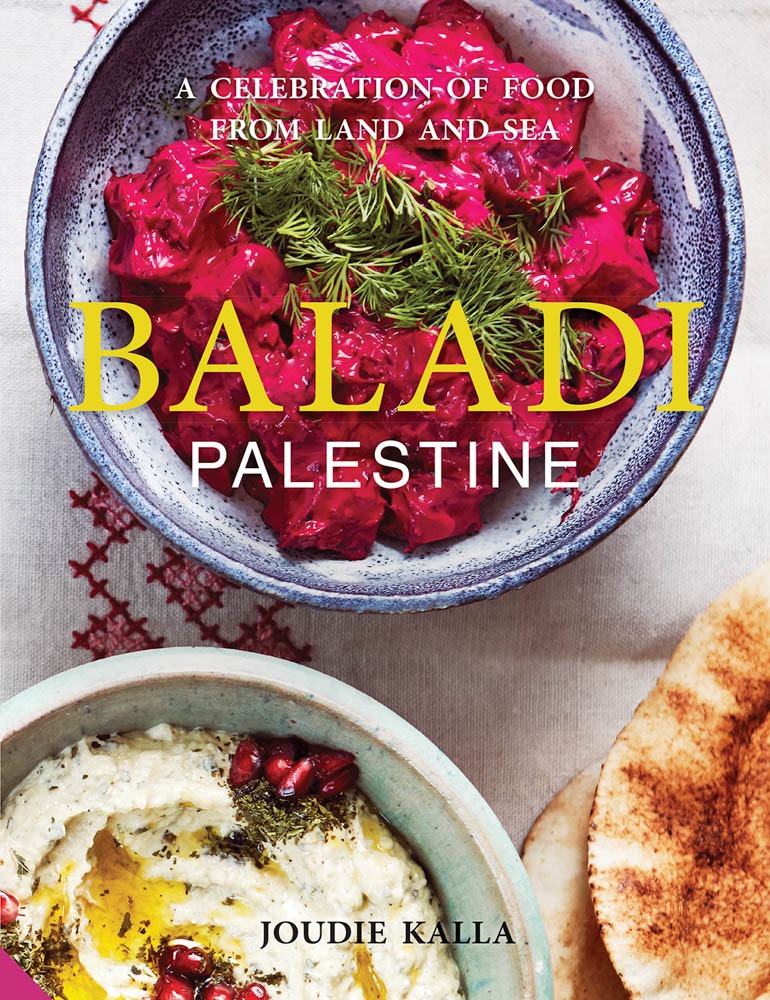
Baladi Palestine: A Celebration of Food from Land and Sea
Tom Verde
Joudie Kalla
2019, Interlink Books, 978-1-62371-981-4, $35 hb.
Both these titles explore the time-honored traditions of Palestinian cuisine, viewed from different angles. Kalla, a London-based chef, has a long history with Palestinian food, passed down from her grandmother, aunts and mother, while Khan, a cookbook author, absorbed her knowledge of and passion for the foods of the West Bank, Gaza and East Jerusalem during travels to the region as a human-rights worker. Baladi translates variously as “my home, my land, my country,” and Palestinian food is family matter to Kalla, be it her father’s soft-boiled eggs with yogurt, chili and lemon, or her aunt’s ground lamb, stuffed vine leaves with tomatoes and potatoes. She includes a recipe for salmon, “not common in the waters of the Middle East,” yet well suited to a classic Levantine marinade of pomegranate molasses, honey, olive oil and lemon. Khan was welcomed into Palestinian homes and kitchens where she detected the “influences of Armenian, Bedouin, Jewish, Roman, Arabic, Persian and Turkish cultures” on local cuisines. Galilee features “a magnificent array of colourful mazzeh (mezze) dishes” developed on a wealth of local produce, while its coastal towns “make judicious use of . . . fresh fish and seafood.” The West Bank “focuses more on meat and bread, drawing its major influences from the cuisine of Jordan to the east and the Bedouin populations to the south,” where lamb stewed in yogurt (mansaf) and “mussakhan, roast chicken seasoned with sumac and caramelised onions and served on taboon flatbreads”are traditional favorites. In Gaza, “fresh dill, green chillies . . . copious amounts of garlic” and seafood form “the centrepiece for many meals.”
You may also be interested in...

Historic Mosques in Sub-Saharan Africa
From Mali to Tanzania, historian Stéphane Pradines traces a thousand years of Islamic architecture that forces us to rethink what we know about Africa’s past.
Archaeology and Geology of Ancient Egyptian Stones
Spanning three decades of fieldwork, Archaeology and Geology of Ancient Egyptian Stones is as vast as its subject: the stones ancient Egyptians used to shape their civilization.